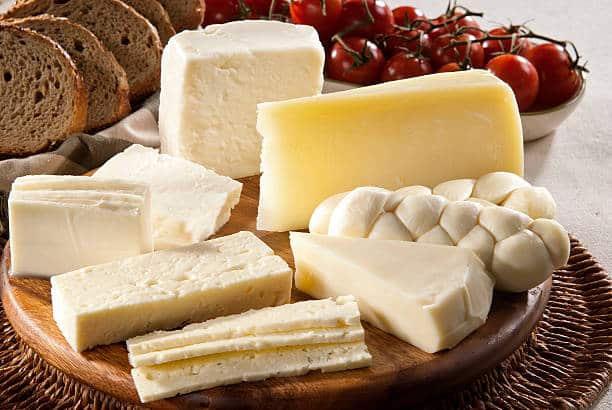Is Cheese Good for Diarrhea? – Overview
Cheese is a well-known food that is made of milk. In some countries, cheese is made from goat’s milk, sheep’s milk, cow’s milk, or any kind of domestic animal that produces milk.
The milk may be pasteurized or non-pasteurized, skimmed or non-skimmed. It could be acidic or sweet.
Cheese is valued at its potential for long life, and a high proportion of fats, proteins, calcium, and phosphorus. Cheese is more concentrated and has a longer validity period than milk.
A cheese manufacturer near the area that sells milk may benefit from low-priced fresh dairy products and lower freight costs.
The long life of some stored cheese, especially the cheese covered in the shell, allows the cheese to be sold when markets are favorable.
What is Diarrhea Anyway?
Diarrhea is an increase in the volume, liquidity, or frequency of bowel movements. However, repeated bowel movement is not the only hallmark of diarrhea.
Some people usually do it 3 times a day. People who eat large amounts of plant fiber may produce more than 0.5 kg of feces a day, and in such cases, feces are well-formed rather than watery.
The occurrence of diarrhea coincides with the formation of gases, the sense of cramping pain, and the often-urgent need for defecation.
If diarrhea is caused by an organic infection or a toxic substance, it is also accompanied by nausea and vomiting.
What are the Health Benefits of Cheese?
Cheese of various kinds provides some the health benefits to the human body, of which we mention the following:
Rich in calcium
Calcium available in cheese can help promote dental health. Calcium plays an important role in dental formation.
It can help reduce blood pressure, it is recommended that low-fat, low-sodium cheese be chosen to achieve this benefit, and it can also benefit people with a weight-loss diet, since people with a high body mass index (BMI), calcium levels are likely to be low in their bodies.
Good source of probiotics
Most cheeses are exposed to fermentation, but this does not mean that all varieties of fermented cheese contain probiotics, so it is necessary to read the food sticker to make sure that cheese contains live and active bacteria, and the beneficial bacteria can survive the excision process in some cheese, such as mozzarella, cheddar, and crab cheese.
These bacteria provide a lot of health benefits to the body and brain, and they can improve the health of the digestive system.
Boost your immune system
Certain types of cheese, such as blue, Swiss cheese, and cheddar cheese, contain selenium, an oxidizer that plays an important role in the immune system. In addition, B vitamins in cheese help maintain body function and raise immunity.
Good for your skin
Being rich in B vitamins, cheese is very useful for the skin. It helps to grow cells, making the skin glowing and removing defects and spots, leading to healthy skin.
What is the Nutritional Content of Cheese?
Cheese is a very good dietary source that is rich in proteins, fat, vitamins, and minerals. The following table shows the nutritional value of cheese for each 100g:
| Content | Amount |
|---|---|
| Calories | 402 Kcal |
| Total Fat | 33 g |
| Saturated Fat | 21 g |
| Cholesterol | 105 mg |
| Sodium | 62 mg |
| Potassium | 98 mg |
| Total Carbohydrate | 1.3 g |
| Dietary Fiber | 0 g |
| Sugar | 0.5 g |
| Protein | 25 g |
| Vitamin C | 0 mg |
| Calcium | 721mg |
| Iron | 0.7 mg |
| Vitamin D | 24 IU |
| Vitamin B6 | 0.1 mg |
| Vitamin B12 | 0.8 µg |
| Magnesium | 28 mg |
Is Cheese Good for Diarrhea?
Cheese is a fatty food that can make diarrhea worse. This is because cheese contains a high quantity of Lactose (type of sugar) that is difficult to be processed by the digestive system.
In the case of lactose intolerance, Cheese can be the cause of diarrhea.
Advice for Getting Rid of Diarrhea
The problem with diarrhea treatment is that the accompanying clinical picture is usually characterized by digestive disorders that can prevent the proper absorption of the medication.
So, over the next lines, we’re going to highlight the most important dietary tips that help treat diarrhea and associated digestive disorders.
Drinking water and fluids should be frequent to compensate for the fluid lost by the body, as well as to avoid dehydration.
The favorite foods in cases of diarrhea are peeled apples, poached bananas, poached or roasted potatoes, poached carrots, rice soup.
Foods with low-fat content should be eaten while moving away from fatty foods. In general, poached or roasted foods are the best option.
Yogurt is characterized by a high content of probiotics (beneficial bacteria), which are surprisingly effective in eliminating harmful bacteria causing diarrhea.
White bread is preferable to brown bread in cases of diarrhea.
The salt content of food should be slightly increased, to compensate for the loss of salts that occur during diarrhea episodes.
You should stay away from sugar-rich foods, raw or poached vegetables except for carrots, Hot or spicy food, and Tea.
See Also
Does Cheese Cause Constipation
References
https://www.cheese.com/
https://www.ncbi.nlm.nih.gov/
https://www.ncbi.nlm.nih.gov/
